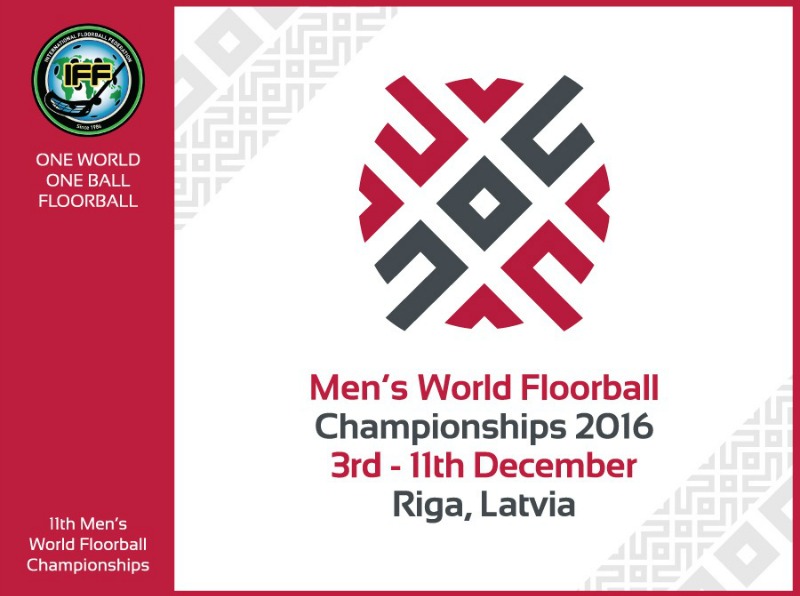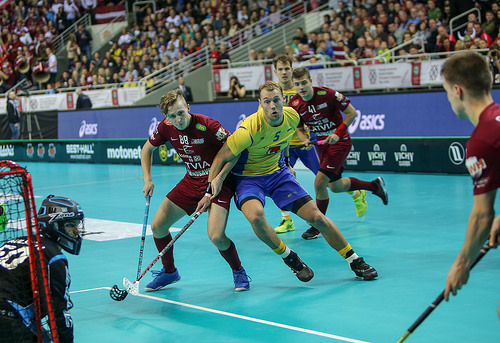
WFC 2016 Sportcal Study findings – 10.05.2017

Sportcal GSI Event Study measures holistic impacts of IFF 11th Men’s World Floorball Championship 2016
The 11th Men’s World Floorball Championship 2016, held in Riga, Latvia, was the tenth-most attended world championship in 2016, which contributed to the competition’s overall ranking of 21st out of 70 events in Sportcal’s Global Sports Impact (GSI) Events Ranking, according to the latest analysis from the GSI Project.
Findings across a range of indicators covering economic, media, social media, sponsorship, sporting and social sectors have been released in the latest published GSI Event Study. The publication also provides a series of data comparisons, benchmarking the championships against a variety of major world championships from other sports that took place in 2016.
The study is the first in a five-year agreement for the 2016-2020 period between Sportcal and International Floorball Federation (IFF) to conduct in-depth research on the impact of IFF World Floorball Championships. This encompasses the 2016, 2018 and 2020 men’s editions, and the 2017 and 2019 women’s editions.
The Men’s World Floorball Championship 2016 was held over nine days across the Latvian capital, recording a total attendance of 85,110.
Accredited media personnel for the competition totalled 333, including 172 members from overseas. This indicator was the tenth-highest among all world championships considered in the GSI Events Ranking.
Media exposure during the event was also ensured through 24 broadcasters showing live, delayed and highlights coverage, in addition to online streaming and YouTube.
John Liljelund, IFF Secretary General, says:
- The IFF 11th Men´s World Floorball Championship played in Riga, Latvia proved that our major floorball competitions have become appealing and engaging spectacles. The World Floorball Championship is the showcase event of our sport, and based on the findings from Sportcal’s GSI Project, we can continue to monitor and develop our events going forward. This is the reason that we have commissioned a study on each of our world championships for the years 2016-2020. We hope to gather information to prove that we organise world-class events, as well as to increase the awareness of our sport and showcase the business opportunity that this sport can offer worldwide.
Mike Laflin, CEO of Sportcal, says:
- It is clear from the GSI Event Study that the Men’s World Floorball Championship has delivered a significant range of impacts to the host city of Riga, Latvia. The event ranks very highly in our GSI Events Ranking for 2016, 21st out of 70 events, and clearly demonstrates how it can deliver a whole range of benefits to future host cities and nations. We would like to thank the International Floorball Federation, the organising committee and the city of Riga for their excellent support and co-operation in the production of this study.

About IFF Men’s World Floorball Championship 2016 - study findings summary:
Economic:
Overseas spectators at the championships contributed an estimated 24,250 bed nights, contributing over two-thirds of the total bed nights generated. The total attendance at matches was 85,110, of which 45% was overseas spectators. The number of tickets sold, which were sold for a single day of competition only, amounted to 32,543.
Media:
A total of 324 hours of live, highlights and delayed coverage was shown by 24 broadcasters, including 256 live hours, reaching a potential 22 TV nations, spanning four continents. Including magazine and news programming, TV coverage reached a potential 134 nations across 29 broadcasters in five continents.
Social Media:
Six related social media accounts across Twitter, Facebook and Instagram recorded a total of 817 posts, attracting 205,471 ‘likes’/’favourites’ during the competition. There was a total of 9,013 new followers across all accounts, with an average increase in followers of 6.3%.
Sporting:
The competition saw 320 athletes from 16 nations across four continents compete. Europe was the most represented continent with 11 nations. In addition, there were a total of 205 officials, including 160 team officials and 35 technical officials.
Social:
A demonstration match organised by Special Olympics Latvia took place during a transmission of one of the competition’s matches, which was being shown live by several European broadcasters. A total of 363 volunteers helped to run the event, including 20 from overseas.
Text by Sportcal
Video Referee in WFC 2016 – 7.12.2017
WFC 2016 Sportcal Study findings – 10.5.2017
Men‘s WFC 2016 in facts & figures – 22.12.2016
The World Games qualifiers – 13.12.2016
Finland wins the World Championship title – 11.12.2016
Kotilainen WFC 2016 MVP – 11.12.2016
WFC 2016 All Star Team – 11.12.2016
Switzerland gets bronze medals and goes to The World Games – 11.12.2016
Denmark gets their win in penalty shootout to secure 5th place – 11.12.2016
Germany wins and finishes 7th – 11.12.2016
Slovaks win the game, slotting in 9th, hosts finish 10th. – 10.12.2016
Finland advances to the finals and The World Games – 10.12.2016
Sweden tops Switzerland and goes to final – 10.12.2016
Norway wins in OT – 10.12.2016
Estonia returns from 0-5, but loses in the OT – 10.12.2016
IFF celebrates 30th Anniversary – 10.12.2016
Finland stops Danish winning streak – 9.12.2016
Switzerland will play in the semi-finals – 9.12.2016
Poland finishes 13th – 9.12.2016
USA qualifies for The World Games and takes 11th place – 9.12.2016











